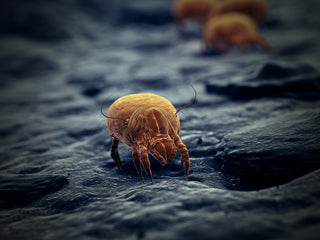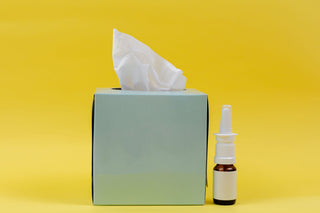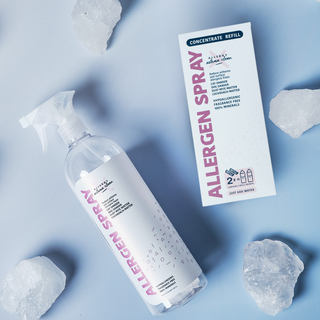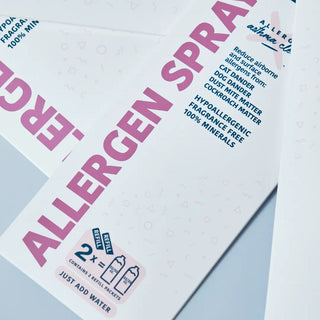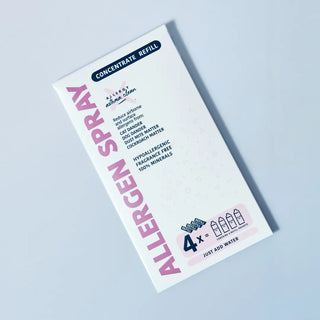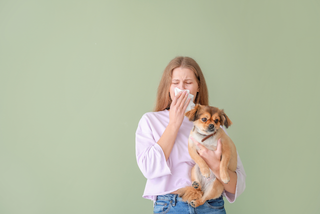

FREE DOWNLOAD
6 Steps to Reducing Pet Allergens
Enter your email and the free download will be sent right away.
Pet Allergens
If you're one of the millions of people who are allergic to pets, you know how difficult it can be to live with allergies. Pets are a part of many people's lives, and it's not always easy to give them up. However, there are ways that you can manage your allergy and still keep your pet. In this blog post, we will discuss some tips for living with an allergy to pets. Explore our guide to discover if you are truly allergic to your pet, what are pet allergens, and advice for alternative options on how to treat your allergies to pets.
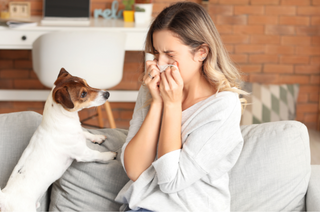

Are you allergic to your pet? The signs
Many people are surprised to find out that they are actually allergic to their beloved furry friend. The most common symptoms of pet allergies are sneezing, stuffy nose, coughing, wheezing, red, itchy, watery eyes, and rash or hives. If you experience any of these symptoms after coming into contact with your pet, It's likely you have an pet allergy and it's important to see an allergist for testing because it's very uncomfortable to live with pet allergies and you might be allergic to other allergens.
How the body reacts to an allergen
Allergies are a complex immune response in which the body senses an otherwise harmless substance as a threat. When an allergen is encountered, the immune system responds by releasing histamines and other chemicals into the bloodstream, causing symptoms such as sneezing, wheezing, or hives. These reactions are intended to help eliminate the perceived threat from the body, but they can also cause serious health problems and discomfort for those who suffer from allergies. Ultimately, understanding how allergies work is critical for anyone who wants to live a healthy and comfortable life despite their allergic sensitivities.
Your mucous membranes and allergens
Mucous membranes are found throughout the body, lining various cavities and covering surfaces that come into contact with the external environment. One of their primary functions is to act as a barrier against harmful substances, such as bacteria and viruses. However, mucous membranes can also become irritated or inflamed in response to allergens, or pet allergens. When this happens, mucous membranes produce excess mucus in an attempt to flush out the allergen. This can lead to symptoms such as runny nose, watery eyes, and sneezing. In severe cases, mucous membrane inflammation can cause difficulty breathing.
Learn more about your triggers
From dust mites to pet dander

